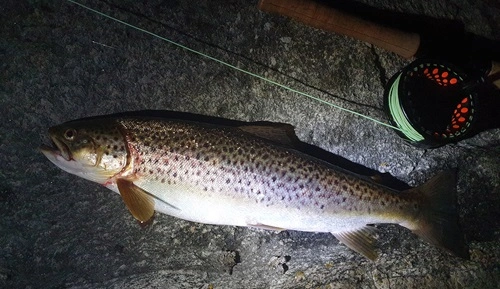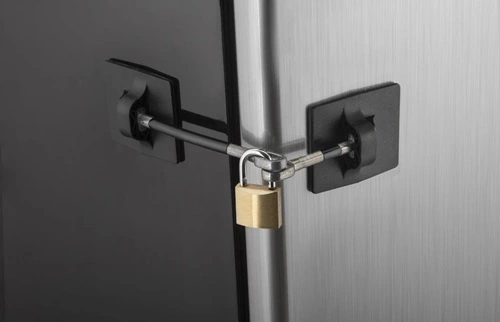No, fishing at night is not inherently illegal in the United States. However, whether or not it is permitted depends on specific state laws, local regulations, and the type of body of water. Some locations may have restrictions on night fishing for conservation purposes, safety, or to regulate specific species.
The General Legality of Night Fishing
- State and Local Regulations
- Each state manages its own fishing laws through its wildlife or natural resources agency. While most states allow fishing at night, there may be restrictions in particular areas or during certain seasons.
- For example, fishing at night might be prohibited in certain wildlife preserves or in locations where nighttime activity could harm a protected species.
- Federal Rules for Protected Areas
- Federal lands, such as national parks or wildlife refuges, may have additional restrictions. Always check with the governing body for federal areas before fishing at night.
- Species-Specific Restrictions
- Certain states regulate nighttime fishing based on the species being targeted. For instance:
- In some regions, fishing for trout or bass at night may be restricted during spawning seasons.
- Restrictions on fishing for certain species like catfish, which are more active at night, may exist to prevent overfishing.
- Certain states regulate nighttime fishing based on the species being targeted. For instance:
Common Scenarios for Night Fishing
- Public vs. Private Waters
- Fishing at night in public waters, such as lakes, rivers, and reservoirs, is usually allowed unless otherwise stated by local ordinances.
- On private property, you must obtain permission from the property owner to fish at any time, day or night.
- Saltwater vs. Freshwater Fishing
- Saltwater fishing at night, particularly off piers or beaches, is generally legal and popular. However, local ordinances may regulate beach access or restrict certain activities after dark.
- Freshwater fishing, especially in reservoirs or state-managed lakes, might have specific time restrictions.
- Night Fishing with Artificial Light
- Many anglers use artificial lights to attract fish at night, but some states regulate this practice. For example, certain states may prohibit the use of bright lights to protect nocturnal wildlife or prevent unfair advantages.
Safety and Ethical Considerations for Night Fishing
- Licenses and Permits
- Always ensure you have the appropriate fishing license and check if additional permits are required for nighttime fishing in your area.
- Safety Gear
- Carry safety equipment like flashlights, navigation tools, and reflective clothing to avoid accidents.
- Environmental Concerns
- Practice ethical fishing by minimizing light pollution, avoiding disruption to local wildlife, and cleaning up any trash or fishing gear.
Legal Consequences of Night Fishing Violations
- Fines and Penalties
- Violating nighttime fishing regulations can result in fines ranging from $50 to $1,000, depending on the severity of the offense and the state.
- Seizure of Equipment
- In cases of illegal fishing, authorities may confiscate fishing gear, boats, or vehicles used in the activity.
- Fishing License Suspension
- Repeated violations could lead to suspension or revocation of your fishing license.
Popular Locations for Legal Night Fishing
- Saltwater
- Gulf Coast beaches in Texas and Florida are popular for nighttime fishing. Many piers remain open 24 hours to accommodate anglers.
- Freshwater
- Reservoirs and lakes in states like Arizona and California are known for their night fishing opportunities, especially for species like catfish and bass.
- Urban Areas
- Cities with managed lakes and public fishing piers often allow night fishing, provided local rules are followed.
Common FAQs
Q1. Is night fishing legal in all states?
Ans: No, while most states permit night fishing, restrictions may apply in certain areas or for specific species. Always check local regulations.
Q2. Do I need a special permit to fish at night?
Ans: Typically, a standard fishing license suffices. However, some areas may require additional permits for nighttime fishing or the use of certain equipment, like lights.
Q3. Can I use artificial light while fishing at night?
Ans: It depends on the state. Some states allow the use of artificial lights, while others restrict it to protect nocturnal wildlife.
Q4. Are there specific species I can’t target at night?
Ans: Yes, certain species, such as trout or salmon, may have nighttime restrictions during specific seasons, particularly spawning periods.
Q5. What should I bring for night fishing?
Ans: Essential items include a flashlight or headlamp, reflective gear, appropriate bait and tackle, a fishing license, and safety equipment like life jackets for boating.
Conclusion
Night fishing is a legal and enjoyable activity in most parts of the United States. However, understanding and adhering to local, state, and federal regulations is essential to avoid fines and penalties. By respecting conservation efforts, practicing ethical fishing, and prioritizing safety, anglers can make the most of their nighttime adventures.


